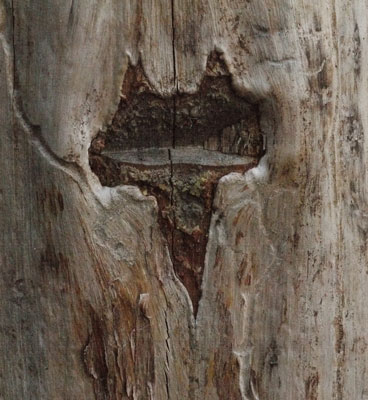
Wood Growth Pattern Around Ax Wound
| The following photos show wood grain following fairly direct paths around the wounds of ax blazes. Providing the tree top survives, the xylem and phloem arrange themselves to efficiently carry fluids up and down the tree. The wood grain parallels and follows the transport paths. |

Wood Growth Pattern Around Ax Wound |
| Note the bead in certain areas, a result of the healing process at the edges of the wound. Note the healed wood is a thin layer: this tree survived just a few years after the blaze was cut. |

Wood Growth Pattern at i Blaze |
| Where bark is growing inward from the sides of a wound, the wood grain may be wavy, following whatever pattern the healing took. |
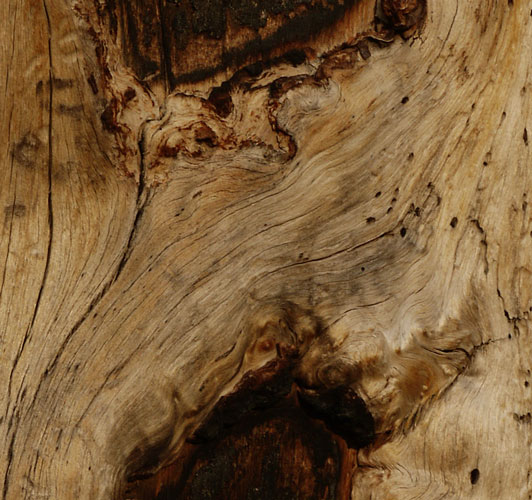
Wood Growth Pattern at i Blaze |
| Above and below, the tree healed a few years before the tree died. Whorls and spirals formed in corners between stranger flow lines. |
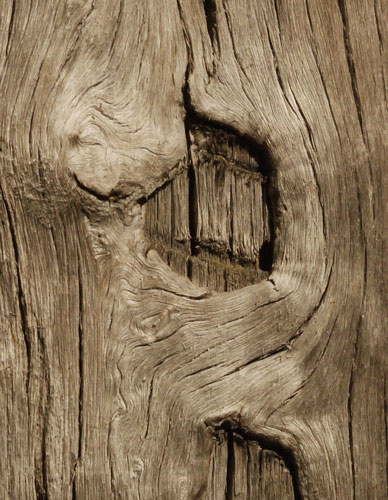
Wood Growth Pattern at i Blaze |

Wood Growth Pattern at i Blaze |
| The healed wood here is a couple of inches thick, indicting the tree survived many years. The flow of the wood grain is very regular, with little waviness or whorl. Eventually, these irreguarities are overlain by fairly straight grained wood. |
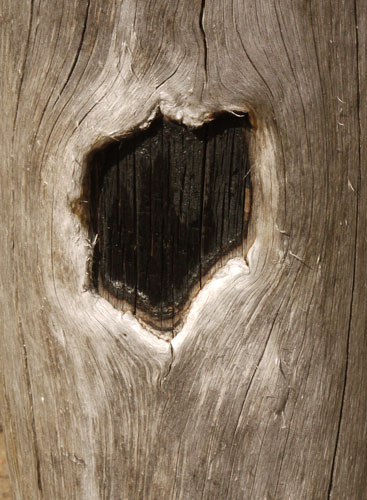
Wood Growth Pattern, Char at Blaze |
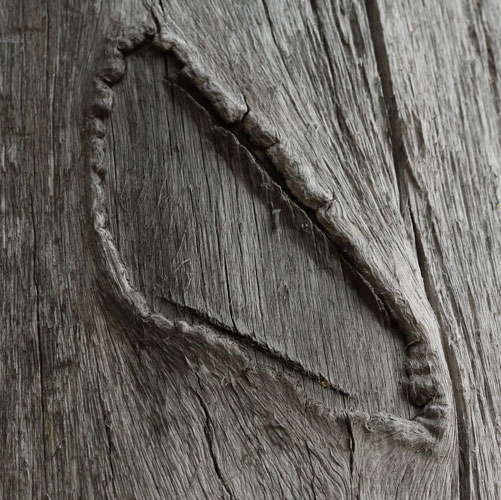
Hatchet Blaze Wood Growth Pattern |
| Tidy rectangular blazes are cut by Pulaskis, tools incorporating and adze, which cuts the horizontal lines, and an ax, which cuts the vertical lines, as the worker stands in front of the tree. This blaze was cut by someone standing to the side of the tree, reaching up and to the side, and making the two cuts. |
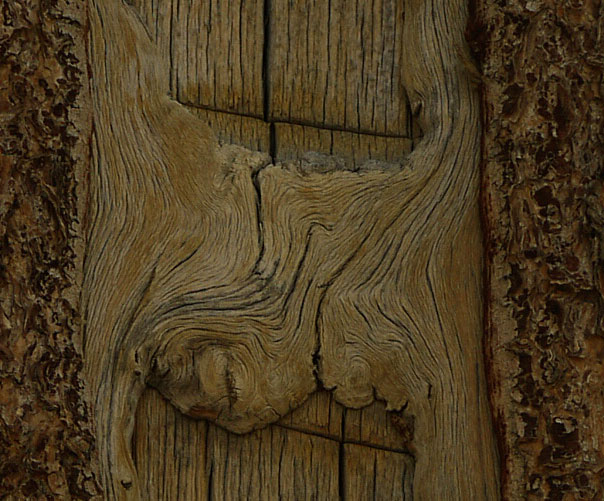
i Blaze Wood Growth Pattern |
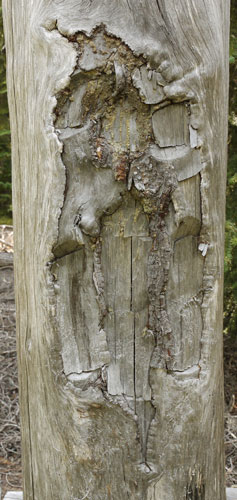
iii Blaze Wood Growth Pattern |
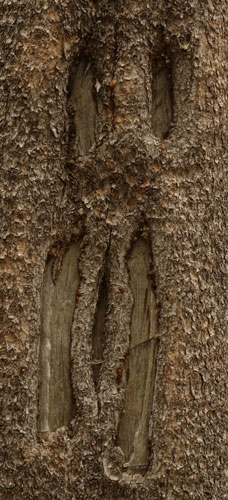
iii Blaze Bark Growth Pattern |
| After the center single i blaze was cut, many years went by and the blaze was multiple annual growth rings deep. Rather than simply recutting the central blaze, an i blaze was cut to both sides of the original blaze. I saw many similar iii blazes in Oregon. | |
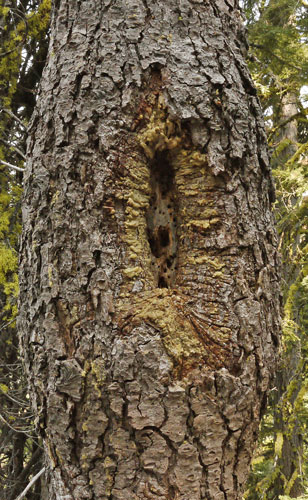
Tree Swollen at Blaze |
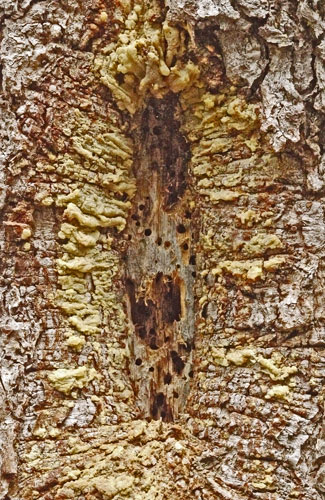
Bark Growth Pattern at Blaze |
| Note that the bark growing inward to cover the blaze has a much different appearance than the rest of the tree. The entire tree is swollen near the blaze wound. | |
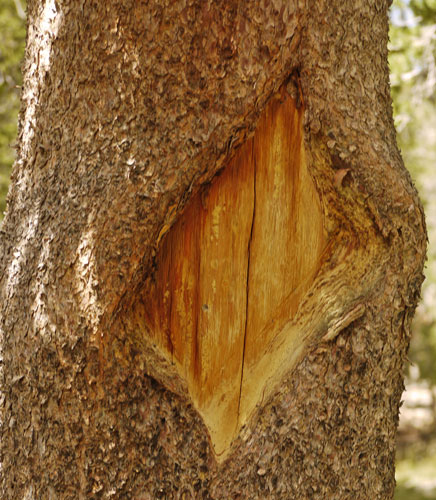
Growth Pattern at ♦ Blaze |
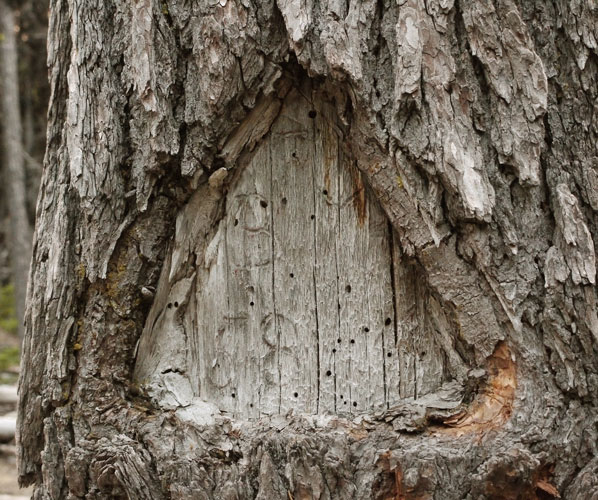
Triangle ▲ Blaze, Recut, Text: 3M 58 |
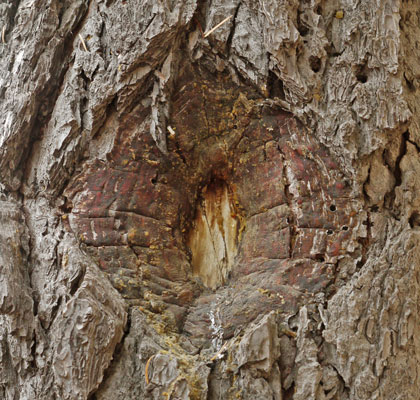
Diamond ♦ Blaze Bark Growth Pattern |
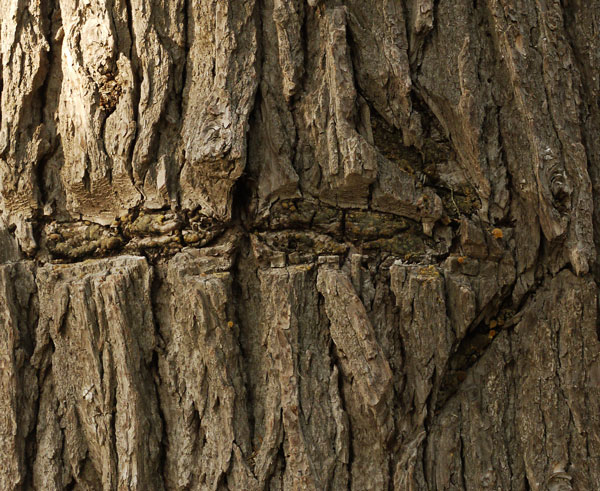
Arrow → Blaze Bark Growth Pattern |
| Note bark ridges in shaft of arrow. The blaze was cut through the living bark and healing occurred. |
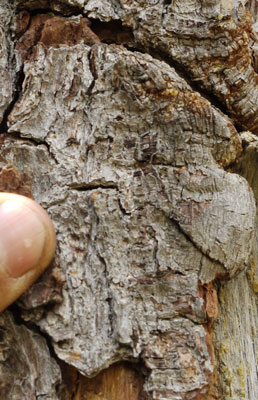
Outside of Bark |
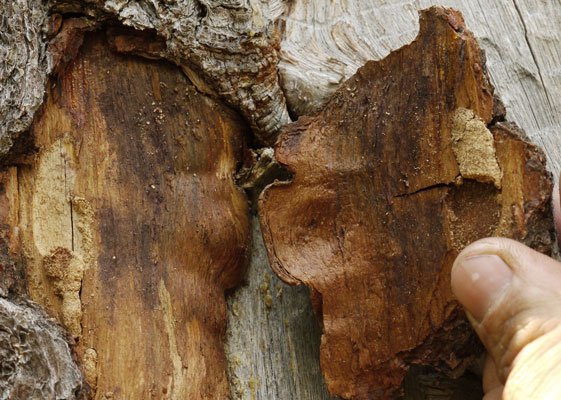
Trunk, Inside of Bark |
| Above and below are photos inside and outside the bark. | |
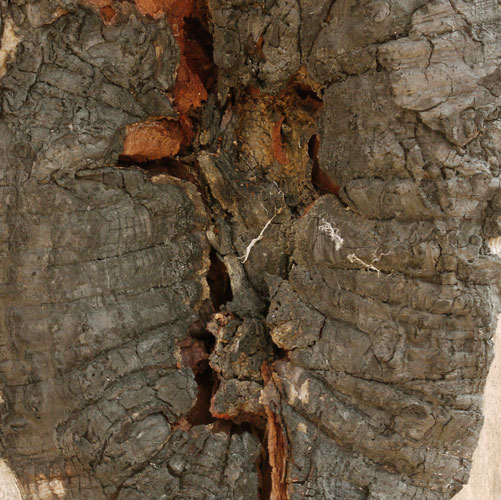
Outside of Bark |
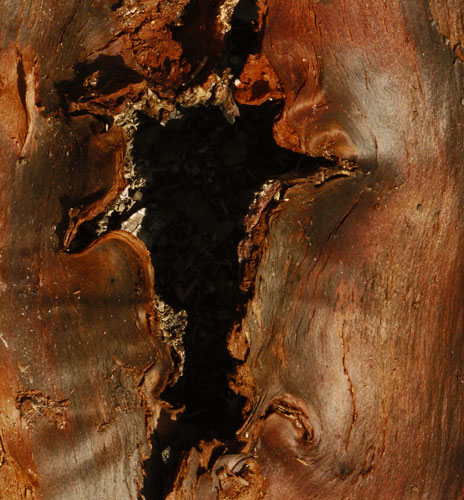
Inside of Bark |
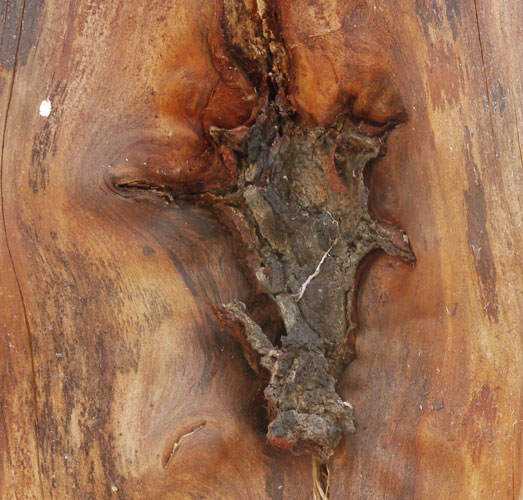
Trunk of Tree |
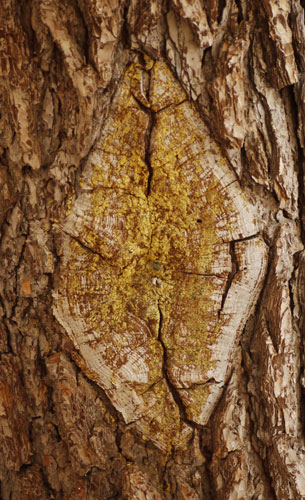
Healed Diamond Blaze |
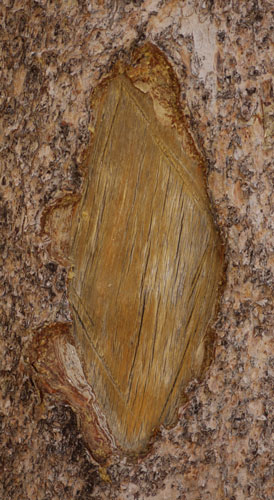
Diamond Blaze |
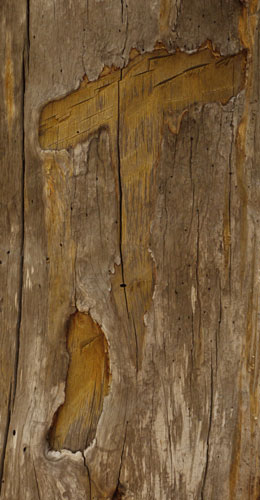
T Blaze |
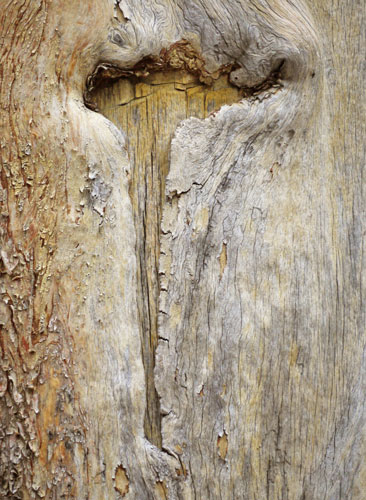
T Blaze |
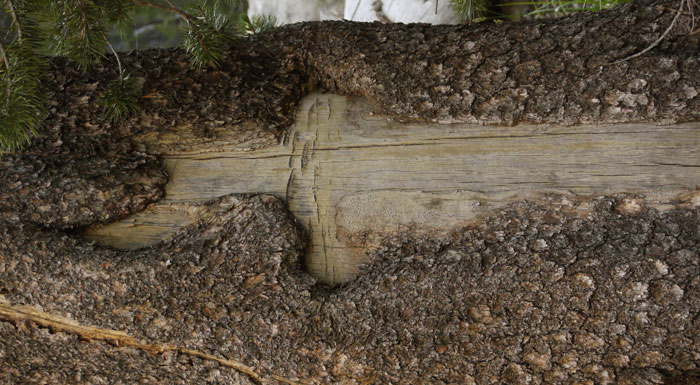
Dagger Shaped Blaze
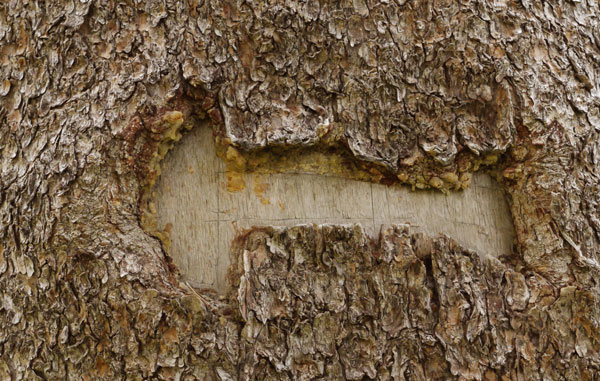
Arrow Blaze
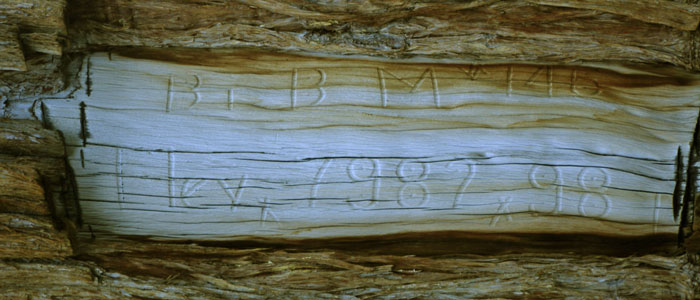
Blaze
B. B M * 146
Elevx 7982x98 l
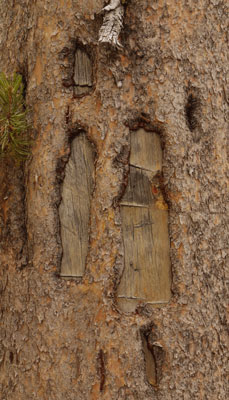
Multiple Blazes, One Tree
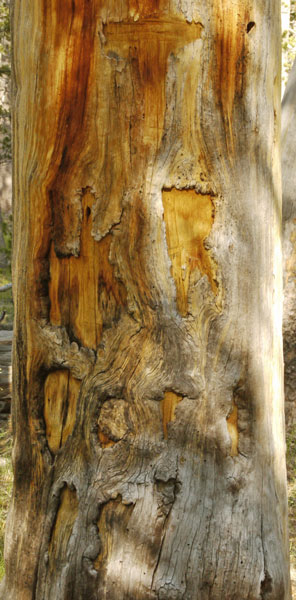
Letters Carved in Tree |
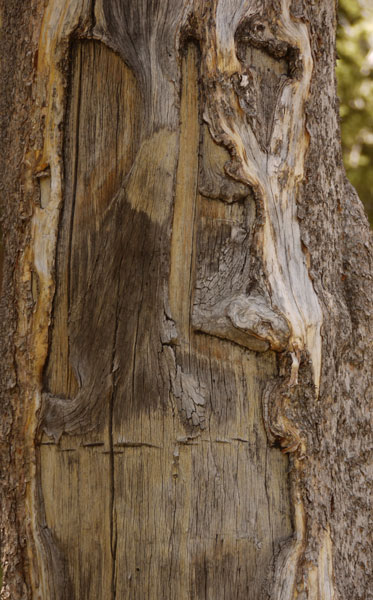
Blaze, PE |
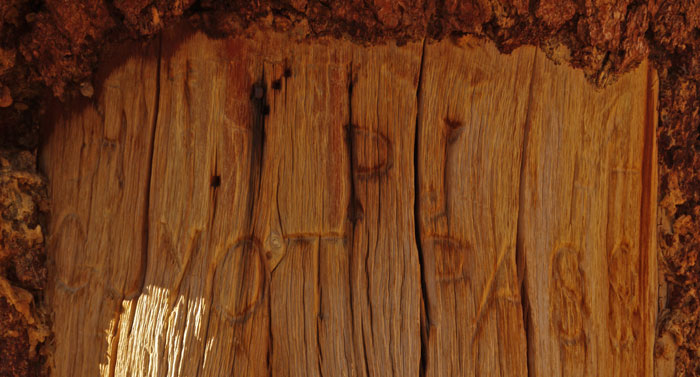
Blaze, PI, Guyot Pass

Quadruple Blaze, Burned

Triple Blaze
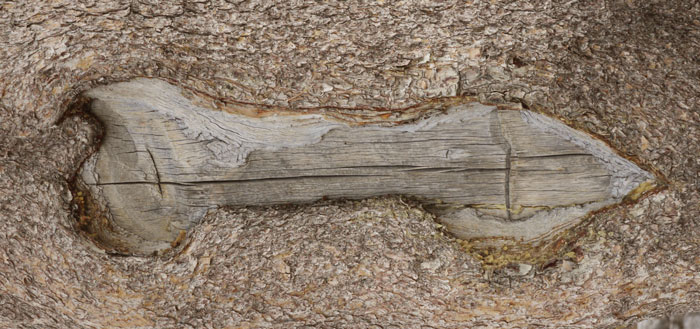
Down Pointing Arrow Blaze
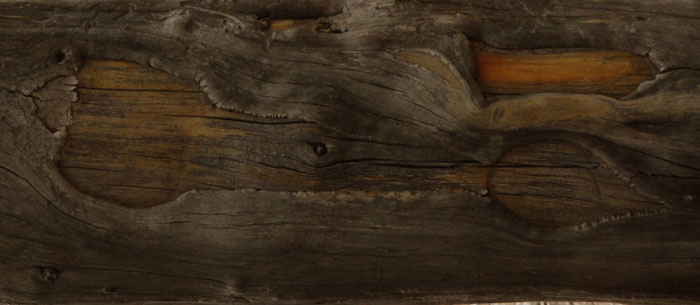
Down Pointing Arrow Blaze
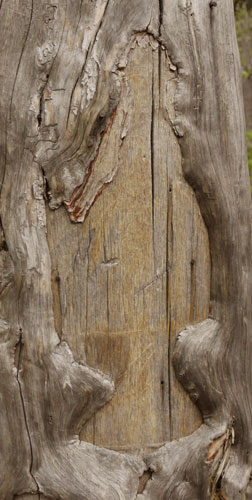
Arrowhead Blaze, Nails |
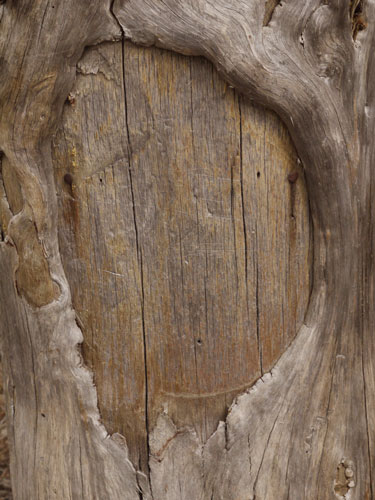
Round Blaze, Nails |
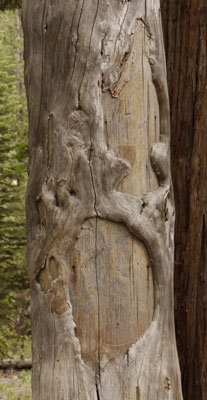
Blaze Tree |
The above 3 photos, of the barkless Down Pointing Arrow, the Arrowhead Blaze, and the Round Blaze, were all on the same tree. This photo is on the west side of the tree: if you walked left to the other side, you could see the Down Pointing Arrow. There were other small healed cuts through the bark. You can see the tree survived probably less than ten years, successfully healing around the cuts, then dying. The tree was towards the bottom of Kennedy Creek Trail 21e03, perhaps near the Nightcap Stock Driveway. |
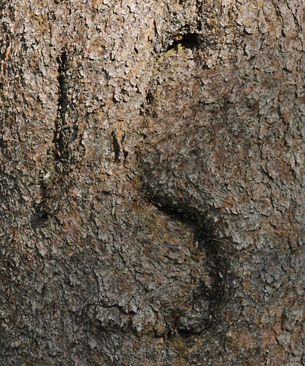
Bark Growing over Numerals 1 5 |
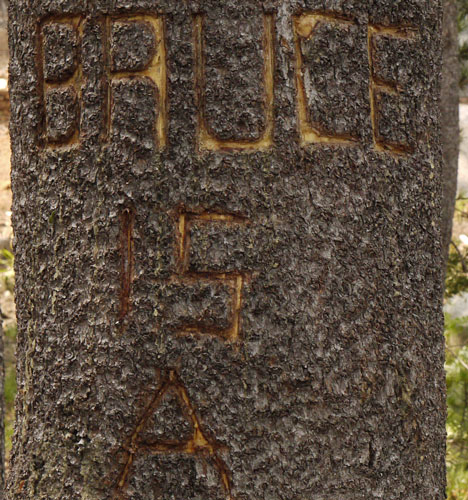
Grafitti on Tree |
I don' know what Bruce originally carved below this, as it was later modified to various rude words. This vandalism goes about 1&frals;3 of the way around the tree, drastically interrupting the flow of sap. |
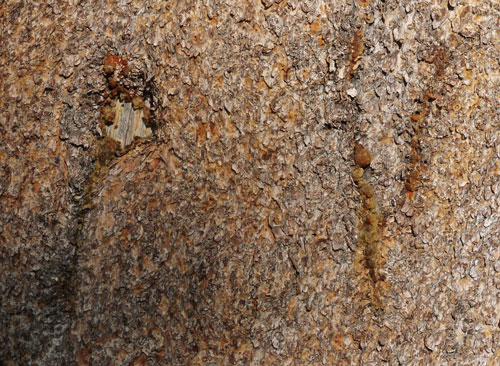
Bark Growing over Letters P V |
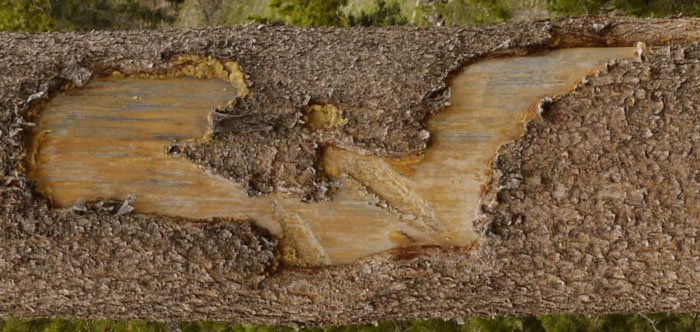
Another Falling Tree Scraped this Blaze Like Scar.
|
Wood Burned PCT Blazes There were two PCT blazes burnt directly into the wood of live trees within bark blazes. Per former rangers I met once, long ago a ranger with a mule equipped with a big propane tank on one side and an asbestos sleeve with a flame heated steel PCT blaze die on the other side would travel the PCT burning these blazes into trees. In many cases, these blazes were later covered by wood blocks burned with the PCT blaze in much the same way. Eventually, the blocks split off the two nails securing them to the tree, exposing the original burnt blaze once again. | |
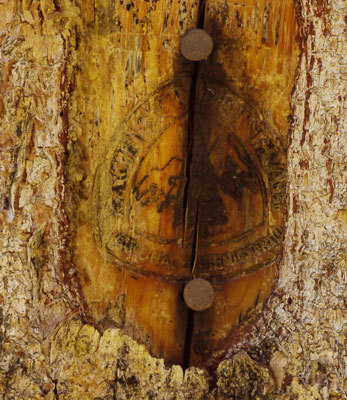
Blaze Burned into Tree |
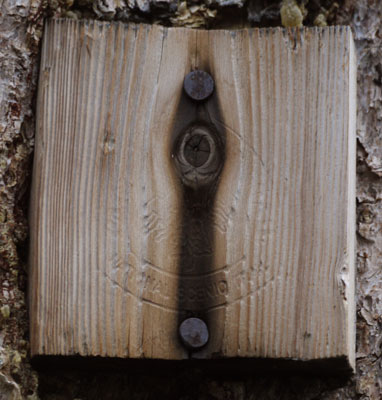
Blaze Burned into Block |
| On the left, you can see the bark overgrowing the blaze. To maintain it, one would have to cut away the recovering bark without damaging the burnt in mark. Instead, the type of block on the right was nailed over the original burnt blaze. The blocks were burned and drilled in a shop someplace, so that in the wilderness, just a few minutes with a hammer was required for installation. Unfortunatly, these blocks split on the line between the nails, either right away if you aim the hammer poorly, or after decades of exposure. The crack could start with the hammer, and proceed for decades as the wood rots and the growing tree pushes the sides out while the center is held by the nails. In the right photo, see cracks starting above and below the nails, and the curvature of the block. I also saw split blaze blocks on the ground under trees with nails. | |